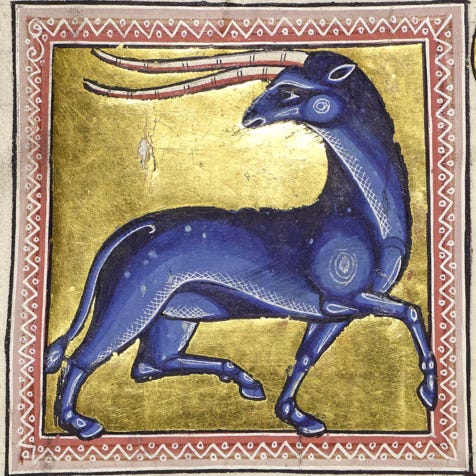I didn’t recognize the name, not at first. Bob Campeau. And to be fair, he didn’t expect me to: the message on Facebook began ‘You won’t remember me, but we attended the same high school. Everyone called me Bobby C back then, if that helps.’
It did. Bobby C, sometimes; more often Hillbilly Bobby, said with a roll of the eyes and a sneer. He’d shown up at our regional high school in grade 9, coming with a handful of other kids from the Eighth Concession road, the year they changed the high school boundaries to try to keep our little school viable. Out there, in the centre of the county, the land was heavy clay, drained marshland that grew soy and corn well. Between the flat farms some areas of woodland and marsh had been left where the creeks had cut steep and winding valleys, and on one of those patches of wild land Bobby and his family lived. The house was little more than a shack, I was told, still with an outdoor privy and heated with wood in the 1970s. I’m not sure they had electricity, even.
They weren’t hippies, in case you’re wondering. Just a family that hadn’t much changed how they’d lived since the first of them had come from France to fish and trap and hunt in the forests and marshes of the county a couple of hundred years back. When the trees had been cut down, the lumber destined for England’s navy, a lot of it, and the land drained for the plough, a few families had clung to the old ways of living. The Campeaus must have been just about the last of them.
There was a lot that marked Bobby out in that grade 9 year. Long hair, longer than anyone else’s parents would allow, and his clothes. Green work pants, flannel shirts, clothes bought at the Co-op alongside shotgun shells and muskrat traps. Threadbare running shoes until winter; battered workboots through till spring. Hands that always seemed to have dirt or oil ingrained, although his clothes and hair were clean.
He wasn’t in most of my classes: I was in academic stream; he was in trades and commercial. But he was in my phys ed class, and art. Mr. Pratchett, the art teacher, didn’t let us choose our own seats at the two-person tables; he assigned us places alphabetically. Carter – that’s me, Carl Carter – had the stool beside Campeau.
So I was probably the first person to learn that Hillbilly Bobby could draw. His classwork – the still lifes and sketches from the articulated wooden models – were good, but when he was done that, he’d draw from memory: deer, birds, a fox, and they could have walked off the page and into the woods. I think Mr Pratchett’s jaw dropped the first time he saw one of those sketches. The boy had real talent.
I read the rest of the Facebook message. ‘I’m in your town next weekend,’ it read. ‘Would you be interested in meeting up for coffee? It’ll have to be early though.’
Well, I thought, why not? I was curious to learn what Hillbilly Bobby had done with his life, I suppose. One of the coffee shops downtown opened at 7. I messaged him back, made the arrangements. Then I went to open his Facebook site – and the phone rang, I answered it – and the day progressed. I never did go back to see what I could learn from what he posted.
Saturday morning I parked my bike outside the coffee shop at 7:30, locked it, and went in, hoping he’d recognize me from my Facebook photo. I needn’t have worried: the man who stood to greet me didn’t look all that different from the Bobby I’d known 45 years ago. The hair was still long, if streaked with grey, and he still wore a flannel shirt, but with jeans now. “Carl?” he asked.
“That’s me. Good to see you, Bobby.”
We ordered coffees, sat, talked. He was a carpenter, he told me: built decks and sheds and sometimes houses. Custom work when he could get it, construction framing when he couldn’t. I told him about my research, travel, the tribulations of teaching undergraduates – which inevitably took us back to our high school days.
“Who was your favourite teacher?” he asked.
“Mrs. O’Donnell. She made geography interesting – geology, really. It’s why I majored in it in university, and then went on to grad school.”
He nodded. “And yours?” I asked, fully expecting him to say Mr. Pratchett, the art teacher.
“Your dad,” he said.
“My father?” My father had taught in the tech wing: woodworking and electricity and plumbing. Trades mattered; they were an honourable way to make a living, he said, but he’d been proud of my academic career. “Because he taught you carpentry?”
“That, but it’s not all.” He took a sip of his coffee. “In grade 9, I had woodshop right after lunch. He was testing me on safe use of the bandsaw, sometime in the first couple of weeks, and, well, he noticed my hands were shaking a bit. Asked me – quietly – if I was afraid of the machine. I said no. He didn’t say anything else, just took me through the test. And then asked me to stay for a moment when the bell rang.”
“And?”
“When the room was clear, he asked me if I’d eaten lunch. I think I shrugged, said, ‘a bit’, and he let me go. Every Thursday, he collected our notebooks to mark the week’s notes. When I got mine back on Friday, taped inside it were lunch tickets. Enough for a decent meal at the caf, the main course and a drink and dessert every day. I took at least one class from him every year to the end of grade 12, and every year he paid for my lunches, never said anything, but those lunch tickets were there every week. I saw he’d died a while back, and I wanted you to know.”
“I had no idea.” I thought back to that year I was in grade 9. The year my father had decided not to buy new golf clubs in the end-of-season sales, even though he’d been talking about it all summer. And how the following year he’d passed on a fly-in fishing trip with his buddies. My mother had been proud, I remembered.
“Other men buy a sports car or a boat in their forties,” she’d said. “Your dad just wants to pay off the mortgage. That’s a responsible husband and father. You remember that.”
“It kept me in school,” Bob said. “Another man could’ve taught me the skills. Your dad showed me how to conduct a life with dignity and compassion.” He glanced at his watch. “Gotta go; I have to be on the jobsite at 8:30. Thanks for seeing me, Carl.”
“No,” I said. “Thank you, Bob.” We shook hands. “Keep in touch?”
“Sure,” he said, with a grin. “That’s what Facebook is for.”
I watched him leave. Then I sat down again. I’d never taken a class from my father, but maybe it wasn’t too late to learn from him, after all.
Like what you read? There’s lots more in my Substack story archive.
Find all my books at https://scarletferret.com/authors/marian-l-thorpe
and/or
Find new writers at https://go.bookmotion.pro/fantasticfiction25/59tm8332kz
And here are a couple of other Substacks you might like:







A lovely story, beautifully written, thanks for sharing.
I like how a lot of your fiction starts out like memoir. I never know if it’s fiction or non-fiction until I get to the narrator’s name or gender. (I think this is a good thing.)
Just finished reading Demon Copperhead, and this goes well with it.